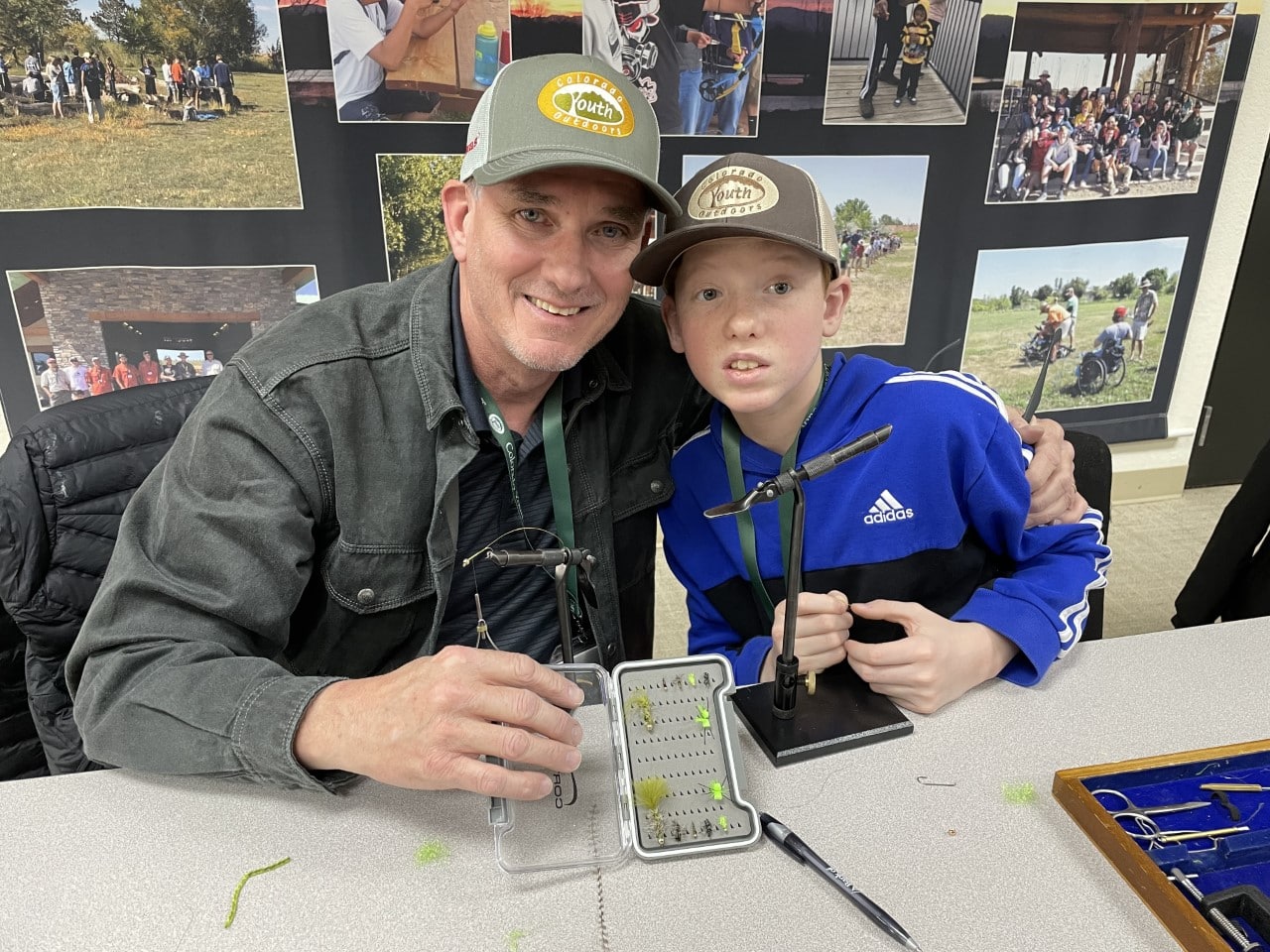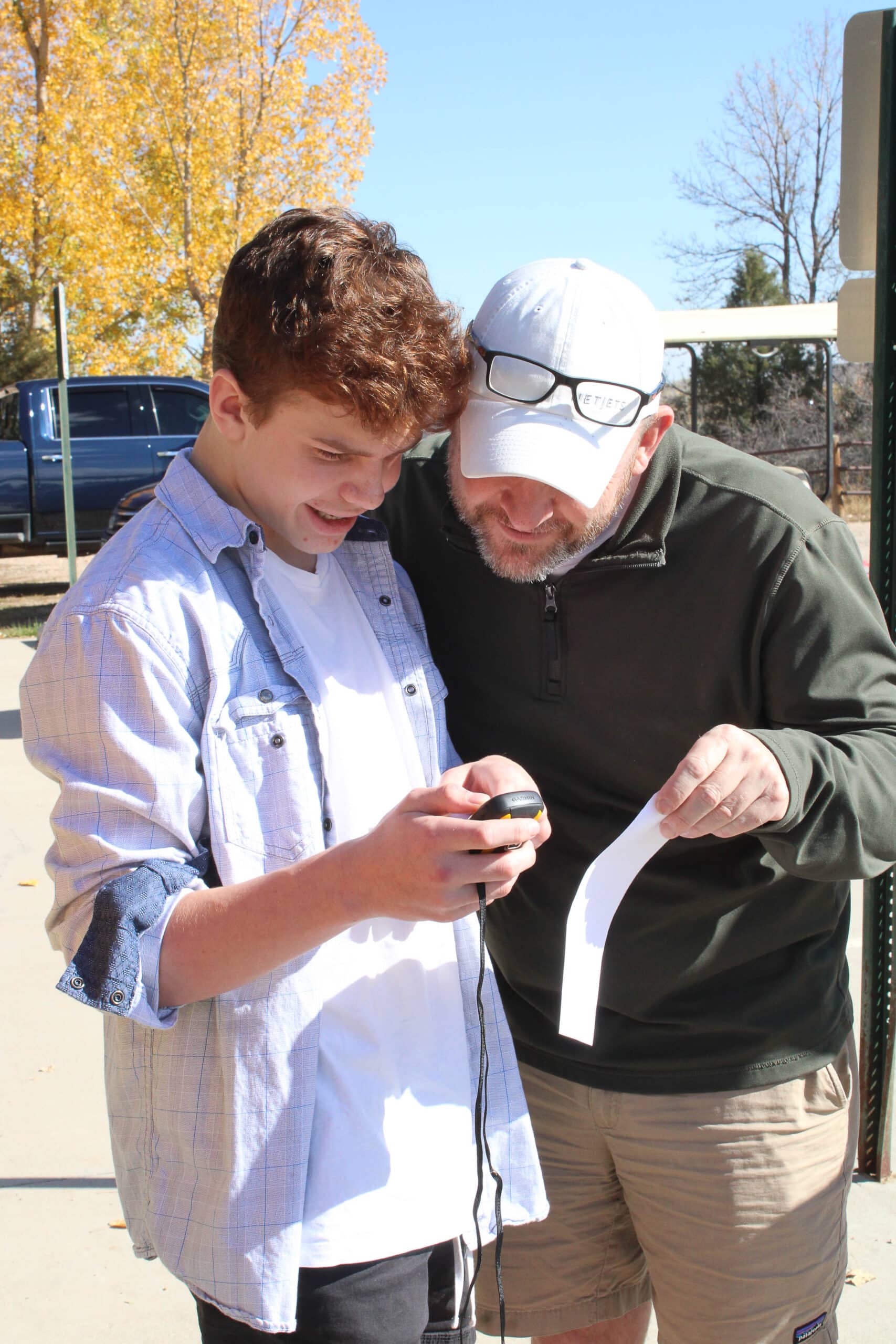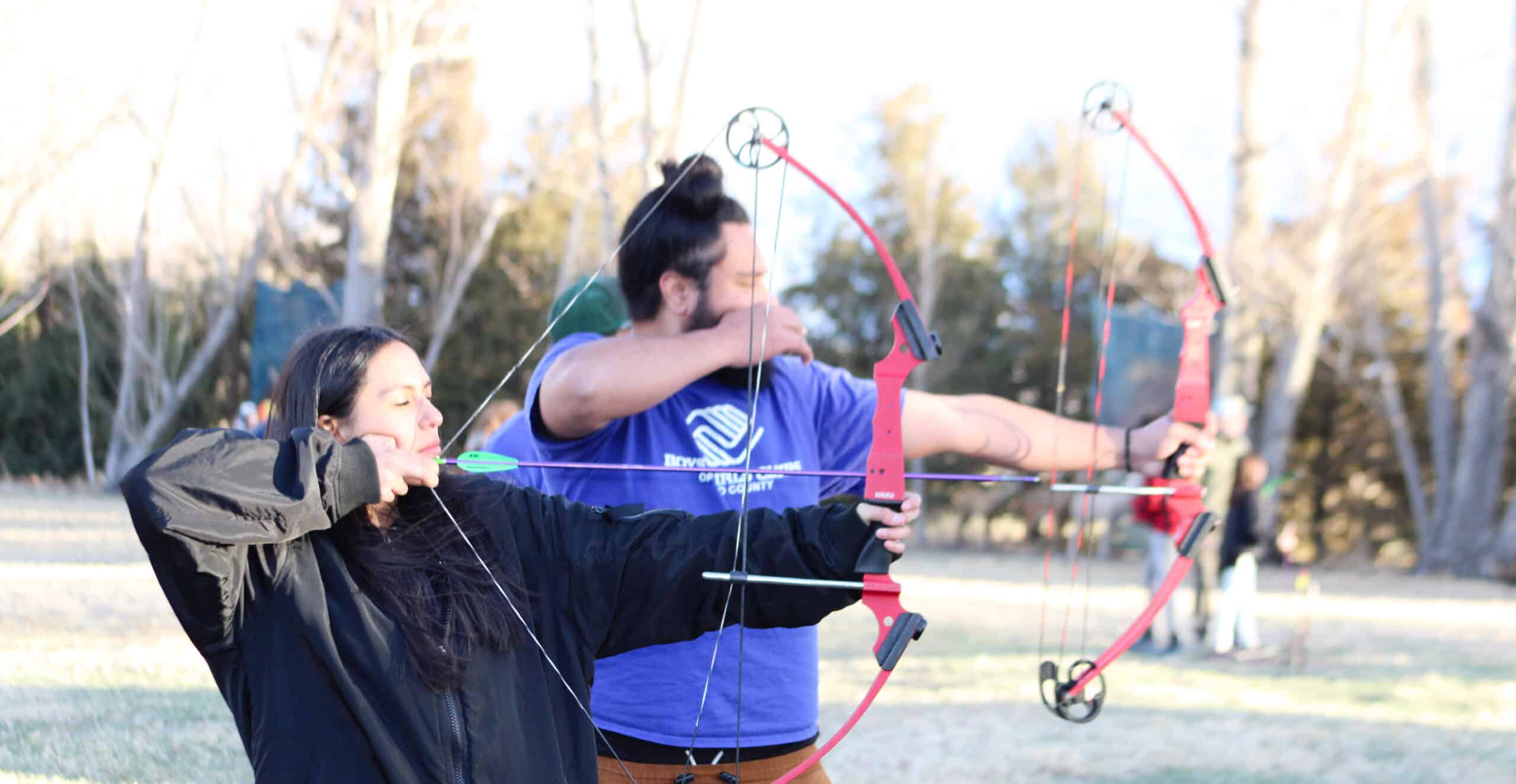PACD: Dedicate

This is the fourth and final installment in a 4-part series on Colorado Youth Outdoors’ teaching model: PACD.
To read in order, start with Participate, then Appreciate followed by Communicate.
PACD (Participate, Appreciate, Communicate, Dedicate) is what we’ve come up with through teaching 20+ years of outdoor recreation. Our goal has always been building your relationship.
Building Your Relationship
PACD is a toolkit to help frame the way you think about and interact to one another. To make it work, we mix in new activities, challenges to complete together, and a bit of the out-of-doors. (We’re onto something – read about Colorado’s Outdoor RX)
We don’t claim to be therapists. We’d never want a talk about feelings to get in the way of catching a bass. In fact, we don’t call our PACD toolkit ‘therapy’. It’s more like character building.
Think of it like that pocket knife you carry around: it takes a hard job & makes it a little easier.
Fourth Word: Dedicate

If you’ve been on board with our lesson plan, you & your partner have done an activity three times that you both were curious about. The first time, you did the activity with a framework of ‘participate.’ The 2nd, ‘appreciate.’ 3rd time, you talked about communication.
Look at that: you did an activity together three times . . . that is dedication! We love it when a plan comes together.
Dedicate means to devote time and effort to a particular task or purpose. A great ball player may be born with talent, but they still are out there practicing every day to make it to the big leagues.
The old musician joke tells the same story: A pedestrian on 57th Street sees a musician getting out of a cab and asks, “How do you get to Carnegie Hall?” Without pause, the artist replies wearily, “Practice.”
Self-discipline, patience, devotion to the process and the humility to change your behavior are all important skills when you’re dedicating yourself to a new activity.
What does ‘dedicate’ have to do with relationships?

When we dedicate ourselves to a relationship, we’re making an effort to value that person in our life. We work towards their benefit, not just our own. Sometimes this is really easy (a new love interest) and sometimes this feels like work (someone you’ve lived with your whole life). No matter if it’s easy or hard, it’s important.
Lesson Plan:
At this point, you & your partner have had three experiences with this new activity. You’re likely nowhere near mastery. That’s okay. Mastery can be your goal – or not!
In your activity today, take time to look at what you’re doing together through this framework:
Commit to each other
Be Present – put your phone away, remove other distractions
Do your best – don’t blow off the activity. Try!
Pay it Forward
Discuss together at the end of your activity:
Share how you plan to dedicate yourself to improve one of your relationships.
What does does pay it forward mean? How can you pay it forward?
What does it look like to do your best at this activity? At school? At home? At work?
Additional Exercise:

When teaching archery at CYO, we talk a lot about anchor points. When your dominant hand pulls the bow backwards with the arrow loaded, you always want that hand to rest on the exact same spot on your face. If you rest your hand in a different spot each try, you’re going to get a different result every time you shoot. In archery, your go-to spot on the side of your face is called an anchor point.
What are your anchor points in life?
We all have something that grounds us, that makes us happy, that motivates us. Anchor points can be faith, family, values/principles, or even a goal. For most everybody, it’s something above and beyond themselves. Sometimes we lose sight of our anchor point in life, and the consequence is that our results can suffer.
Take 3 mins with your partner and discuss what your anchor points in life are. For some of you, you may be able to spit it out right off the cuff. For others, you may need time to think about it. That’s OK, now’s the time to reflect. Think about: What is the most important thing in the world to me? What drives me to keep going – day after day?

